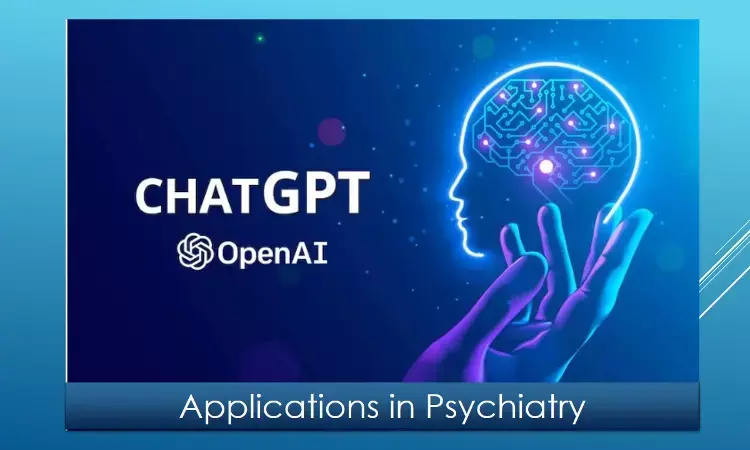- Home
- Medical news & Guidelines
- Anesthesiology
- Cardiology and CTVS
- Critical Care
- Dentistry
- Dermatology
- Diabetes and Endocrinology
- ENT
- Gastroenterology
- Medicine
- Nephrology
- Neurology
- Obstretics-Gynaecology
- Oncology
- Ophthalmology
- Orthopaedics
- Pediatrics-Neonatology
- Psychiatry
- Pulmonology
- Radiology
- Surgery
- Urology
- Laboratory Medicine
- Diet
- Nursing
- Paramedical
- Physiotherapy
- Health news
- Fact Check
- Bone Health Fact Check
- Brain Health Fact Check
- Cancer Related Fact Check
- Child Care Fact Check
- Dental and oral health fact check
- Diabetes and metabolic health fact check
- Diet and Nutrition Fact Check
- Eye and ENT Care Fact Check
- Fitness fact check
- Gut health fact check
- Heart health fact check
- Kidney health fact check
- Medical education fact check
- Men's health fact check
- Respiratory fact check
- Skin and hair care fact check
- Vaccine and Immunization fact check
- Women's health fact check
- AYUSH
- State News
- Andaman and Nicobar Islands
- Andhra Pradesh
- Arunachal Pradesh
- Assam
- Bihar
- Chandigarh
- Chattisgarh
- Dadra and Nagar Haveli
- Daman and Diu
- Delhi
- Goa
- Gujarat
- Haryana
- Himachal Pradesh
- Jammu & Kashmir
- Jharkhand
- Karnataka
- Kerala
- Ladakh
- Lakshadweep
- Madhya Pradesh
- Maharashtra
- Manipur
- Meghalaya
- Mizoram
- Nagaland
- Odisha
- Puducherry
- Punjab
- Rajasthan
- Sikkim
- Tamil Nadu
- Telangana
- Tripura
- Uttar Pradesh
- Uttrakhand
- West Bengal
- Medical Education
- Industry
ChatGPT and mental health care: a powerful tool or a dangerous threat?

Chat Generative Pre-training Transformer (ChatGPT) is a powerful AI-based chatbot system uses a vast neural network to produce a human-like language through which it communicates. It holds enormous potential in many fields, including mental health. It carries vast utilization possibilities and is coming in a big way. A recent editorial published in the Indian Journal of Psychiatry has highlighted the prospective utilization and cautions regarding the applications of AI based platforms like ChatGPT in mental health care.
The Pros:
There is a huge treatment gap in mental health care in developing, lower, and lower-middle-income countries. According to WHO, there is a 76%–85% treatment gap in developing countries regarding mental disorders. According to National Mental Health Survey, in India, the treatment gap reported for any mental disorder is as high as 83%.
The ability of ChatGPT and other AI-based chatbots to generate human-quality responses can provide companionship, support, and therapy for people who have problems with accessibility and affordability in terms of time, distance, and finances.
The ease, convenience, and simulation of talking to another human being make it a superior app for providing psychotherapies.
A word of caution:
“Though there is a lot of excitement associated with the use of AI in various psychiatric conditions, there are several areas of concern with its use. To start with, ChatGPT and other AI are trainable and are trained using web-based information and utilize the reinforcement learning technique with human feedback”, notes author Singh, Om P.
If not prepared with proper responses and from authentic sites, they can provide wrong information regarding the condition and inappropriate advice, which may be potentially harmful to persons with mental problems.
“Confidentiality, privacy, and data safety are significant areas of concern”, adds author stating that sharing vital personal information on a web based platform invites breach confidentiality.
Other concerns are the lack of proper standardization and monitoring, the universality of applications, misdiagnosis, wrong diagnosis, inappropriate advice, and the inability to handle crises.
Finding the right balance:
The author states that American Psychiatric Association (APA) has formulated a digital psychiatry task force to evaluate and monitor AI and mental health-related apps for their efficacy, tolerability, safety, and potential to provide mental health care. Based on this the author argues that given the vast difference in awareness, education, language, and level of understanding in the Indian population, Indian Psychiatric Society and other stakeholders should also start to evaluate and regulate AI-based global and local apps for their safety, efficacy, and tolerability.
Source: Indian Journal of Psychiatry: 65(3):p 297-298, March 2023. | DOI: 10.4103
M.B.B.S, M.D. Psychiatry
M.B.B.S, M.D. Psychiatry (Teerthanker Mahavir University, U.P.) Currently working as Senior Resident in Department of Psychiatry, Institute of Human Behaviour and Allied Sciences (IHBAS) Dilshad Garden, New Delhi. Actively involved in various research activities of the department.
Dr Kamal Kant Kohli-MBBS, DTCD- a chest specialist with more than 30 years of practice and a flair for writing clinical articles, Dr Kamal Kant Kohli joined Medical Dialogues as a Chief Editor of Medical News. Besides writing articles, as an editor, he proofreads and verifies all the medical content published on Medical Dialogues including those coming from journals, studies,medical conferences,guidelines etc. Email: drkohli@medicaldialogues.in. Contact no. 011-43720751


